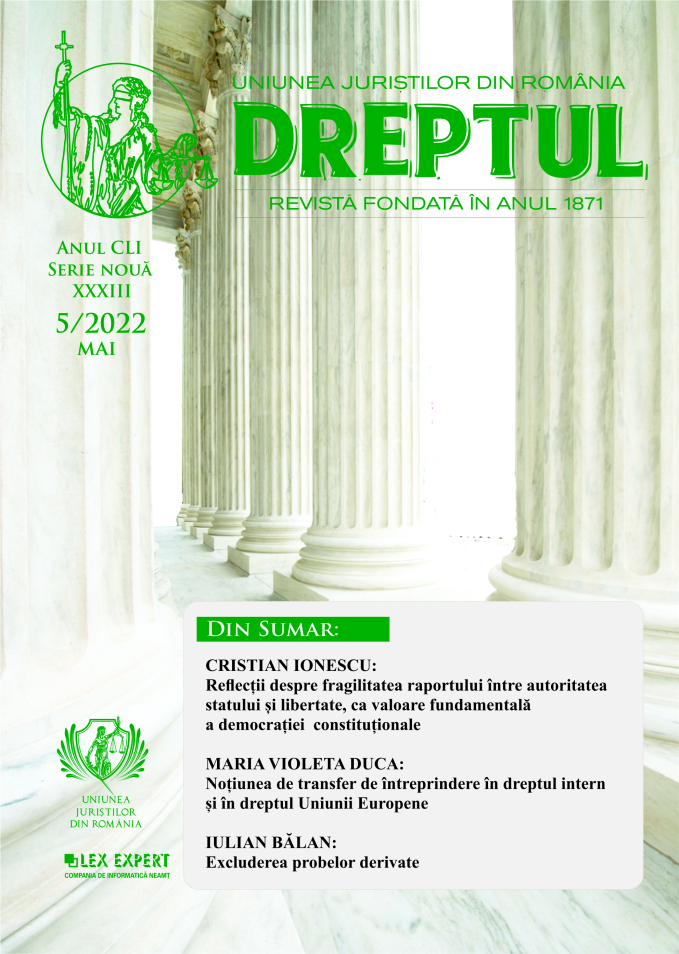Efectul de tip revolving door al cerinței formării de către instanța de judecată a convingerii că persoana condamnată poate fi liberată condiționat întrucât s-a îndreptat și se poate integra în societate
Revolving door effect of the requirement for the court to form a conviction that the convicted person can be released on parole because he is reabilitated and can integrate into society
Author(s): Radu-Ionuț Chiriac, Simona NedelcuSubject(s): Criminal Law
Published by: Uniunea Juriștilor din România
Keywords: parole; court; person deprived of liberty; parole board; evaluation;
Summary/Abstract: Parole was defined in Romanian doctrine as a way to individualize the execution of the custodial sentences, without deprivation of liberty, granted by the final decision of the court which are the conviction that the convicted person has been rehabilitated, as a result of meeting the required conditions during the execution of minimum statutory sentence, there is the semi-open or open regime of enforcement, the person has fulfilled his/her civil obligations, as well as subject to full fulfillment, under probation services, within supervision, of the measures and obligations. As a legal nature2, the parole represents a post iudicium individualization of the execution of the custodial sentences and involves the release of the convict before the full execution of the sentence because the convict has proved that he has made obvious progress towards social reintegration. However, the parole is not a right of the convict not to serve the entire sentence, but a legal instrument by which the court finds that it is no longer necessary to continue the execution of the sentence in detention until the full period established by the final conviction has been fulfilled and the early release poses no danger to the community.
Journal: Revista „Dreptul”
- Issue Year: 2022
- Issue No: 05
- Page Range: 121-146
- Page Count: 26
- Language: Romanian
- Content File-PDF

